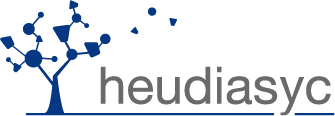fr:recherche
Différences
Ci-dessous, les différences entre deux révisions de la page.
| Les deux révisions précédentesRévision précédenteProchaine révision | Révision précédente | ||
| fr:recherche [2013/01/29 14:33] – sdesterc | fr:recherche [Date inconnue] (Version actuelle) – supprimée - modification externe (Date inconnue) 127.0.0.1 | ||
|---|---|---|---|
| Ligne 1: | Ligne 1: | ||
| - | My research mainly concerns uncertainty modeling and treatment with the help of imprecise probabilistic approaches (Lower previsions theory, Dempster-Shafer theory, Possibility theory). Roughly speaking, these approaches propose to blend interval and probabilistic methods to deal with situations of severe uncertainty (missing or imprecise data, few available information, | ||
| - | Inside these theories, most of my research energy is spent in proposing practical solutions to various problems using these methods or in linking the different solutions each theory proposes to solve common problems (information fusion, independence modeling, ...). | ||
| - | |||
| - | ====== Practical uncertainty representations ====== | ||
| - | |||
| - | Work (mainly) benefiting from collaborations and discussions with D. Dubois, M. Troffaes, E. Miranda, L. Utkin, E. Chojancki and E. Quaeghebeur | ||
| - | |||
| - | There exist many practical representations in imprecise probability theories, including possibility distributions, | ||
| - | |||
| - | Aside establishing new relations between the properties of several models (i.e. clouds, p-boxes, possibility distributions), | ||
| - | |||
| - | Our latest research on the topic include the specification of p-boxes limitations, | ||
| - | |||
| - | ====== Information fusion and combination ====== | ||
| - | |||
| - | Work (mainly) benefiting from collaborations and discussions with D. Dubois, P. Buche, B. Charnomordic, | ||
| - | |||
| - | Merging information from multiple sources is a recurring problem in modern systems. Common problems encountered by such merging are to cope with dependent and conflicting sources and to take account of sources characteristics (reliability, | ||
| - | |||
| - | For practical purposes, we have proposed to use the notion of maximal coherent subsets as a way to deal with conflict among sources, and have applied it to the problem of estimating source reliability form meta-information. | ||
| - | |||
| - | Our current focus in this area concerns the characterization of inconsistency and reliability degrees resulting either from assumptions about the source of information or from the combination of the different pieces of information. Such degrees can then be used to guide the fusion process. | ||
| - | |||
| - | ====== Uncertainty propagation and (in)dependence modelling ====== | ||
| - | |||
| - | Work (mainly) benefiting from collaborations and discussions with D. Dubois, G. De Cooman E. Chojnacki, J. Baccou, T. Burger, M. Sallak and F. Aguirre | ||
| - | |||
| - | How to propagate uncertainty analysis in various models is an important issue that may face several difficulties. Most of my research in this domain has concerned the propagation of uncertainty model through deterministic functions with methods combining Monte-Carlo simulation and interval analysis, with an industrial risk-assessment purpose. | ||
| - | |||
| - | Related problems are how to model independence to obtain tractable joint models (and how to compute with such latter models), or how to simulate a given imprecise probabilistic model. | ||
| - | |||
| - | Some of our recent research also deals with the problem of how to efficiently evaluate the reliability when the component reliabities are uncertain and modelled by imprecise probabilistic knowledge (more speicifically belief functions). | ||
| - | |||
| - | |||
| - | ====== Learning problems ====== | ||
| - | |||
| - | Work (mainly) benefiting from collaborations and discussions with B. Quost, T. Denoeux, B. Ben Yaghlane, N. Sutton-Charani, | ||
| - | |||
| - | Outside of extending some classical classifiers (k-NN methods, Naïve networks) to imprecise probabilistic settings, our work currently focuses on the combination of classifiers, | ||
| - | |||
| - | One of our current favorite field of investigation is the so-called binary decomposition, | ||
| - | |||
| - | |||
| - | ====== Applications ====== | ||
| - | |||
| - | Work (mainly) benefiting from collaborations and discussions with P. Buche, B. Charnomordic, | ||
| - | |||
| - | We have applied ideas coming from imprecise probability theories and more generally concerning uncertainty handling to a number of frameworks, including: | ||
| - | * Flexible querying in data bases (P. Buche, V. Guillard) | ||
| - | * Signal filtering with kernels (O. Strauss) | ||
| - | * Knowledge Engineering (B. Charnomordic, | ||
| - | * Risk analysis and robust design (E. Chojancki, V. Guillard, M. Sallak) | ||




